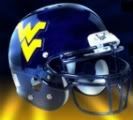Post by elp525 on May 17, 2011 5:36:32 GMT -5
Monday May 16, 2011
by Mike Casazza
Charleston Daily Mail
MORGANTOWN, W.Va. - College basketball is always redefining itself. One year the 3-point line is moved back. Whispers grow louder every year that maybe the court should be lengthened or widened -or both -to accommodate the game's growing athletes.
Next year might see a 3-foot half circle painted under the basket to clarify the block/charge rule ... two years after an ambiguous rule was supposed to solve that problem.
The NCAA Tournament had 64 teams from 1985 to 2001, when it allowed one more team and a play-in game. Last summer it seemed imminent we'd see 96 teams, but expansion was limited to include 68. Those play-in games are now first-round games. Sixty teams don't play a first-round game, but begin with a second-round game.
On and on it goes, as the governors of the game examine timeouts and fouls and replays and the proper ways to interpret and adjudicate.
Now it's the participants taking it upon themselves to alter their identities.
"Mid-major" has been a big-time buzzword for many years. Small schools from small conferences kept causing a stir at the mixers reserved for the larger entities and in 1999 CollegeInsider.com said enough was enough and introduced the now relevant Mid-Major Top 25.
Trouble is, it's a dated system, although through no fault of its own.
Butler has been in back-to-back NCAA title games. Gonzaga takes chartered flights to its road games. George Mason and VCU have been to Final Fours.
Mason held onto its their coach for as long as possible before Jim Larranaga left for Miami (Fla.) - and the Patriots replaced him with Paul Hewitt, who led Georgia Tech to the Final Four in 2004. The Rams just rewarded Coach Shaka Smart by almost quadrupling his salary.
These don't look like mid-major programs on the floor. They're not acting like them off the floor, either.
Oh, some still are. Some have left that party. Others are saying their goodbyes. Every one of them seeks equal footing with their bigger brethren.
All of which brings you to the desk of Jerrod Calhoun, who has been West Virginia's director of basketball operations since 2007. One of Calhoun's biggest responsibilities is assembling the WVU schedule, and in a normal season that's going to include about a half-dozen low- to mid-major programs.
Three of those, Calhoun said, are to be "the best mid-majors you can play."
For the 2011-12 seasons, Calhoun said WVU has secured three "very, very good" mid-majors. One in particular has become something of an offseason obsession for people trying to identify what team could make Calhoun say the Mountaineers "were pretty surprised they wanted to play."
Early guesses: Gonzaga, Butler, Xavier, Memphis.
All good ones. And all of them are wrong. Years ago, those were mid-majors, but the classifications have changed.
"We wouldn't consider them mid-majors," Calhoun said. "No way."
Scheduling those games is never easy and it's going to get more difficult as teams rise up while Butler and VCU and whoever is next make their statements.
Years back Calhoun tried to strike up a series with Siena and Mitch Buonaguro, the head coach now who was an assistant back then, and who Calhoun knew as a player when Buonaguro was an assistant at Cleveland State.
"They were really good and they had been really good for a couple years," Calhoun said. "They wanted a home game."
WVU still wants to play those teams because they look great on a schedule and great on the NCAA Tournament resume, but there are conditions for those teams and for others. The Mountaineers want home games and would rather not enter into a home-and-home series. On the other side of that negotiation are teams that don't want to give in on their requests.
"What you're finding now is with the real good so-called mid-majors, you have to do a home-and-home," Calhoun said. "You look at Wichita State, Butler, Xavier, I think how those teams compare to the others is they're actually buying games now. Those really good mid-majors are calling other teams and paying teams to come to their place."
This is a "guarantee" game where a visiting team is guaranteed a payday for a one-time event. The Mountaineers did very well with that last season in scheduling Oakland (Mich.), American and Robert Morris.
"If I call a Butler or a Xavier, I know those are major programs and they're going to want a home-and home," Calhoun said. "Say I call American or someone like that. They'll take the guarantee to go on the road and play a game."
There are exceptions, but they're hard to secure. WVU played a three-game series against Cleveland State out of a desire to be in Ohio and out of respect for the program under former Kent State and Rutgers Coach Gary Waters. Two games were in Morgantown and one was in Cleveland - and WVU was lucky to win that one on Da'Sean Butler's buzzer-beater in 2009.
The Mountaineers must be careful.
"It's a juggling act," Calhoun said. "We could play Wichita State (on the road) or someone like that, but I don't know if we'd get anything out of it. Say you can play Wichita State in the 30s in the RPI or you can play Cleveland State in the 50s in the RPI at home. Which would you do?"
by Mike Casazza
Charleston Daily Mail
MORGANTOWN, W.Va. - College basketball is always redefining itself. One year the 3-point line is moved back. Whispers grow louder every year that maybe the court should be lengthened or widened -or both -to accommodate the game's growing athletes.
Next year might see a 3-foot half circle painted under the basket to clarify the block/charge rule ... two years after an ambiguous rule was supposed to solve that problem.
The NCAA Tournament had 64 teams from 1985 to 2001, when it allowed one more team and a play-in game. Last summer it seemed imminent we'd see 96 teams, but expansion was limited to include 68. Those play-in games are now first-round games. Sixty teams don't play a first-round game, but begin with a second-round game.
On and on it goes, as the governors of the game examine timeouts and fouls and replays and the proper ways to interpret and adjudicate.
Now it's the participants taking it upon themselves to alter their identities.
"Mid-major" has been a big-time buzzword for many years. Small schools from small conferences kept causing a stir at the mixers reserved for the larger entities and in 1999 CollegeInsider.com said enough was enough and introduced the now relevant Mid-Major Top 25.
Trouble is, it's a dated system, although through no fault of its own.
Butler has been in back-to-back NCAA title games. Gonzaga takes chartered flights to its road games. George Mason and VCU have been to Final Fours.
Mason held onto its their coach for as long as possible before Jim Larranaga left for Miami (Fla.) - and the Patriots replaced him with Paul Hewitt, who led Georgia Tech to the Final Four in 2004. The Rams just rewarded Coach Shaka Smart by almost quadrupling his salary.
These don't look like mid-major programs on the floor. They're not acting like them off the floor, either.
Oh, some still are. Some have left that party. Others are saying their goodbyes. Every one of them seeks equal footing with their bigger brethren.
All of which brings you to the desk of Jerrod Calhoun, who has been West Virginia's director of basketball operations since 2007. One of Calhoun's biggest responsibilities is assembling the WVU schedule, and in a normal season that's going to include about a half-dozen low- to mid-major programs.
Three of those, Calhoun said, are to be "the best mid-majors you can play."
For the 2011-12 seasons, Calhoun said WVU has secured three "very, very good" mid-majors. One in particular has become something of an offseason obsession for people trying to identify what team could make Calhoun say the Mountaineers "were pretty surprised they wanted to play."
Early guesses: Gonzaga, Butler, Xavier, Memphis.
All good ones. And all of them are wrong. Years ago, those were mid-majors, but the classifications have changed.
"We wouldn't consider them mid-majors," Calhoun said. "No way."
Scheduling those games is never easy and it's going to get more difficult as teams rise up while Butler and VCU and whoever is next make their statements.
Years back Calhoun tried to strike up a series with Siena and Mitch Buonaguro, the head coach now who was an assistant back then, and who Calhoun knew as a player when Buonaguro was an assistant at Cleveland State.
"They were really good and they had been really good for a couple years," Calhoun said. "They wanted a home game."
WVU still wants to play those teams because they look great on a schedule and great on the NCAA Tournament resume, but there are conditions for those teams and for others. The Mountaineers want home games and would rather not enter into a home-and-home series. On the other side of that negotiation are teams that don't want to give in on their requests.
"What you're finding now is with the real good so-called mid-majors, you have to do a home-and-home," Calhoun said. "You look at Wichita State, Butler, Xavier, I think how those teams compare to the others is they're actually buying games now. Those really good mid-majors are calling other teams and paying teams to come to their place."
This is a "guarantee" game where a visiting team is guaranteed a payday for a one-time event. The Mountaineers did very well with that last season in scheduling Oakland (Mich.), American and Robert Morris.
"If I call a Butler or a Xavier, I know those are major programs and they're going to want a home-and home," Calhoun said. "Say I call American or someone like that. They'll take the guarantee to go on the road and play a game."
There are exceptions, but they're hard to secure. WVU played a three-game series against Cleveland State out of a desire to be in Ohio and out of respect for the program under former Kent State and Rutgers Coach Gary Waters. Two games were in Morgantown and one was in Cleveland - and WVU was lucky to win that one on Da'Sean Butler's buzzer-beater in 2009.
The Mountaineers must be careful.
"It's a juggling act," Calhoun said. "We could play Wichita State (on the road) or someone like that, but I don't know if we'd get anything out of it. Say you can play Wichita State in the 30s in the RPI or you can play Cleveland State in the 50s in the RPI at home. Which would you do?"





